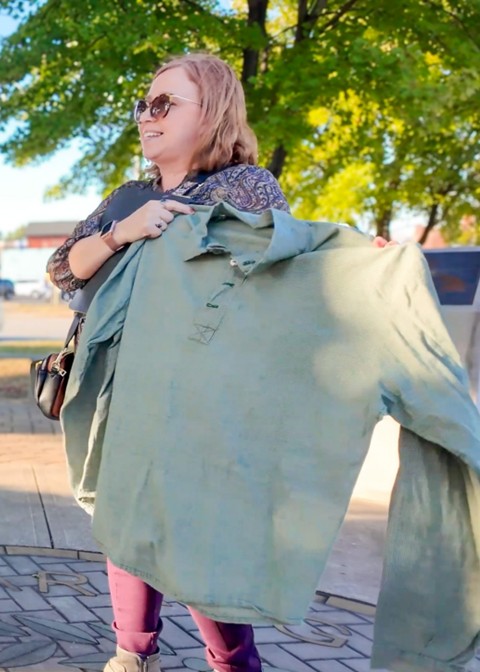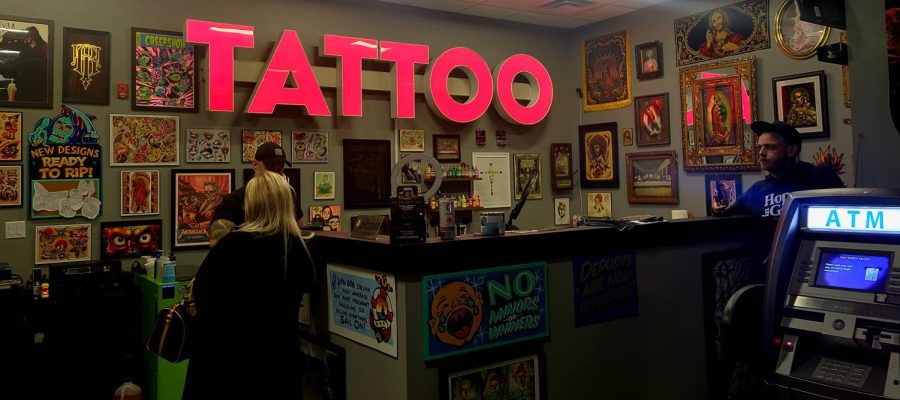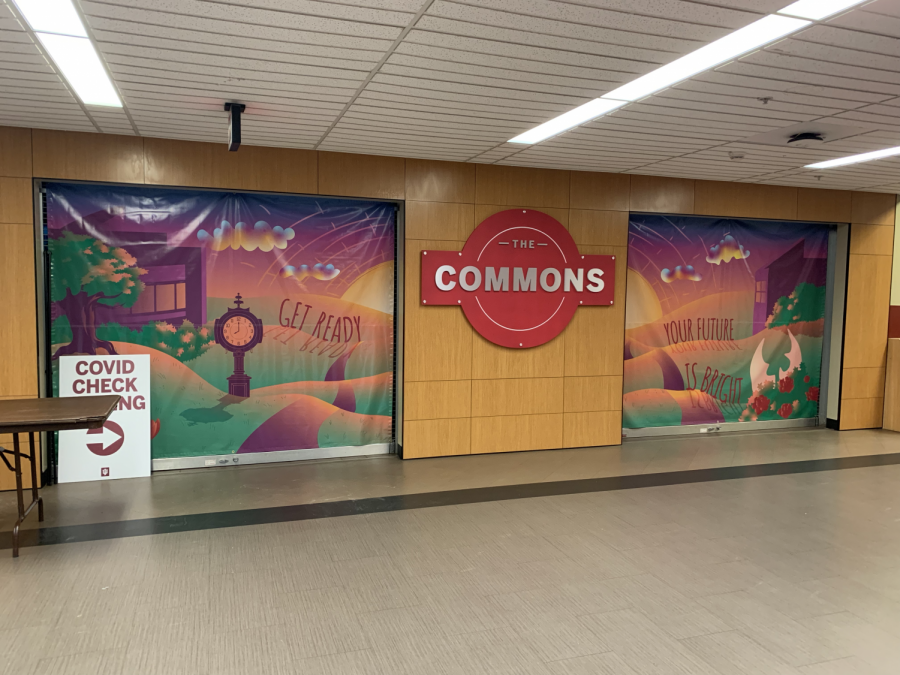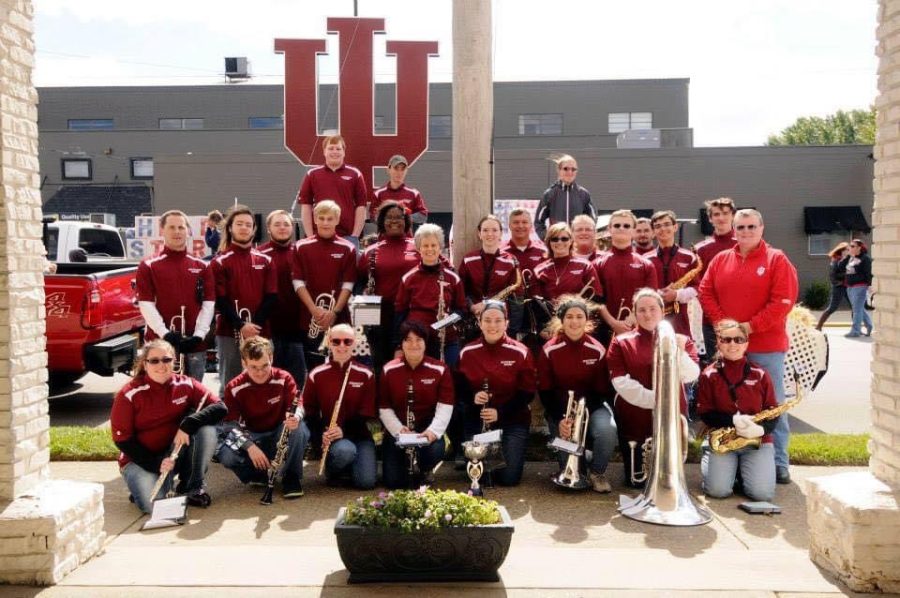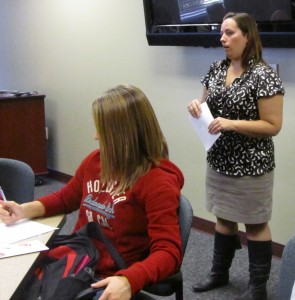
October was Domestic Violence Awareness Month and Melody Mayes, volunteer coordinator for the Center for Women and Families, spoke to students, faculty and staff about the services the facility provides during a presentation in the University Center, room 121, on Nov. 2.
The Center for Women and Families is a non-profit organization that has been offering services to survivors of intimate partner abuse and sexual violence since 1912 and serves nine counties in Southern Indiana and greater Kentucky.
Mayes’ presentation was focused around the economic aspect of abuse, and to inform people of economic abuse, as well as, physical abuse, and how one could seek help.
“Physical abuse is usually the first abuse we see or what people think of,” Mayes said, “but more often, we have clients come in with wrecked credit and no control over their finances from their partners.”
Mayes said the center has a lot of clients primarily wanting to take charge of their finances. The center provides economic success services as well as hospital, medical and legal advocacy, transportation assistance, safety planning, individual counseling, art therapy and support groups.
“We have economic success counselors who teach clients how to manage their money,” Mayes said. “We offer credit recovery programs where we can help clients get their credit back in good standing.”
The Center for Women and Families also provides emergency shelters where someone can stay overnight or however long they need until they are back on their feet. It is not only for women either.
Men are welcomed and offered the same services.
The center is open 24 hours a day and seven days a week for anyone who seeks shelter.
DeAnna Whittinghill, pre-nursing freshman, came to the presentation for her First Year Seminar class and said she felt like she learned a lot.
“It was informative to hear about the different kinds of abuse,” Whittinghill said. “I did not know how much economic abuse was prevalent within abusive relationships.”
The center can also help people who have not experienced any kind of abuse but need financial help. For example, a college student who is within an income guideline and meets with a financial counselor once a month can receive help to save money. Whatever the student saves, the center will give the student double what they saved to help pay back school loans or put a down payment on a house or car.
“Our savings program is a great tool for students who need financial help,” Mayes said. “Most people do not know about our financial services or they think they don’t qualify for our services.”
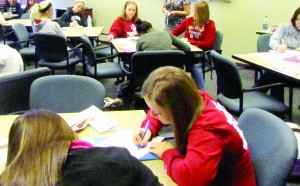
The center is not only a shelter for abused people but a learning center with supportive services that promote self-sufficiency.
There are six shelters in Southern Indiana and Kentucky, three of which are emergency shelters. They also provide transitional housing and long-term housing options.
The transitional housing helps people reach independence and confidence for themselves. The tenant will pay $50 a month to the center, which keeps the money as the person’s savings account. When they move out, the center gives the money back to the client.
Recently, they closed the branch in Harrison County, Ind., and Whittinghill said she found it disappointing.
“I work at the YMCA in Harrison County and I see a lot of people who could benefit from the center,” Whittinghill said. “The people I come in contact with every day would value the services the center provides.”
The Center for Women and Families has 90 staff members and more than 200 volunteers. If interested, volunteer opportunities are offered online.
By CLARE BOWYER
Staff
clbowyer@umail.iu.edu

